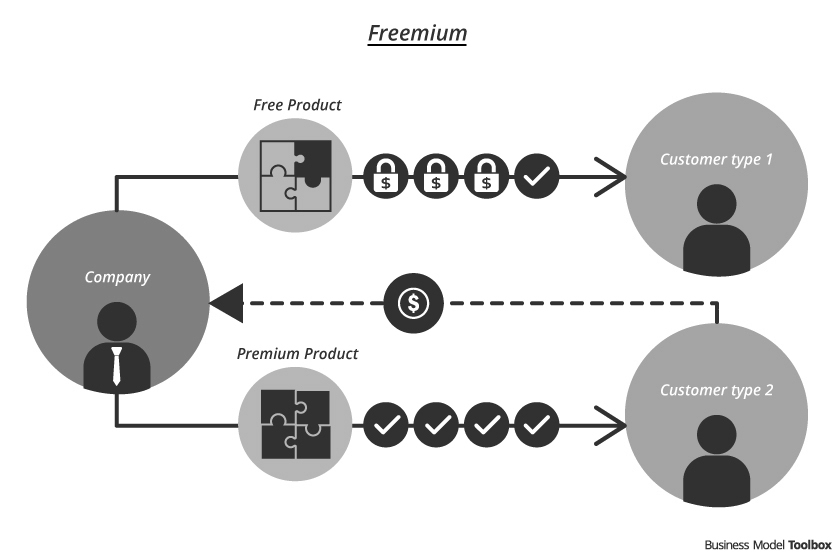Introduction
In today’s fast-paced and interconnected world, decision-making plays a crucial role in both our personal and professional lives. The ability to make sound choices is essential for achieving our goals and navigating the complex array of options that surround us. However, our decisions are often influenced by various mental biases that can lead us astray. One such bias that has gained prominence in recent years is the “Freemium” mental model.
Defining Freemium and Its Relevance
The term “Freemium” is a portmanteau of “free” and “premium” and refers to a business model in which a basic product or service is offered for free, while additional features or enhanced functionality are available for a price. This concept has become prevalent in the digital age, particularly in software, mobile applications, and online services.
The Freemium mental model holds significant relevance in decision-making processes due to its ability to exploit basic human psychology. By offering a free product or service, individuals are enticed to try it out, and once they experience its benefits, they become more likely to invest financially in the premium features. This model leverages the psychological principles of reciprocity, loss aversion, and the desire for personalization, which can influence our decision-making and lead to irrational choices.
Instances of Freemium in Different Contexts
- Personal Life: Consider a fitness app that offers a free version with limited features, allowing users to track their daily steps and set basic goals. As individuals become more engaged and invested in their health, they may feel the need for additional features like personalized workout plans or nutritional guidance. The app capitalizes on this desire by offering a premium subscription with advanced features, exploiting users’ initial commitment and motivation to achieve their fitness goals.
- Business Scenarios: Many cloud storage services adopt the Freemium model, providing a limited amount of free storage space to users. As individuals or businesses reach their storage capacity, they are more likely to upgrade to a paid subscription to accommodate their growing needs. The initial free offering creates a sense of reliance and attachment, making users more inclined to continue using the service and opt for the premium features.
- Public Policy-making: The Freemium mental model is not limited to commercial settings but also finds its way into public policy. For instance, consider a government that provides free public transportation with basic services. As individuals become accustomed to the convenience and advantages of using public transportation, they may be more willing to pay for premium services, such as faster routes or reserved seating. The government exploits this inclination by leveraging the initial investment in infrastructure and free services to generate revenue.
Psychological Biases and Underpinnings of Freemium
Several mental biases contribute to the allure of Freemium, making it difficult for individuals to make rational decisions. One such bias is the endowment effect, which leads people to overvalue what they already possess. When users are provided with a free product or service, they develop a sense of ownership and perceive the premium features as an extension of their initial investment. This feeling of ownership triggers loss aversion, making individuals more likely to pay for premium upgrades rather than risk losing the perceived benefits they already possess.
Moreover, the Freemium model taps into the human desire for personalization and customization. Free offerings often provide a glimpse of the potential benefits of the premium features, creating a psychological need for a tailored experience. This desire for personalization reinforces the perceived value of the premium offering, making it challenging for individuals to resist the allure of upgrading.
Identifying and Avoiding the Freemium Trap
Awareness is key to avoiding the Freemium trap and making more objective decisions. Here are some strategies to help identify and mitigate the influence of this mental model:
- Evaluate your needs: Before engaging with a free offering, assess your requirements objectively. Determine the features that are essential and those that are merely desirable. This evaluation will help you resist the urge to invest in premium features that may not align with your actual needs.
- Understand the pricing structure: Familiarize yourself with the pricing tiers and carefully analyze the added value of each level. Take into account the additional cost, benefits, and the likelihood of utilizing the premium features. Ensure that the benefits outweigh the costs before committing to an upgrade.
- Seek alternative solutions: Explore alternative products or services that offer similar functionality without the Freemium model. Compare the features, pricing, and user reviews to make a more informed decision. This approach will enable you to evaluate options objectively and avoid succumbing to the psychological allure of Freemium.
Conclusion
The Freemium mental model, rooted in human psychology, has become an influential force in our decision-making processes. By offering free products or services that tap into our desire for reciprocity and personalization, businesses exploit our mental biases, leading us to make irrational choices that may not align with our best interests. However, through awareness and critical evaluation of our needs and the true value of premium offerings, we can avoid falling into the Freemium trap.
It is essential to recognize the implications of the Freemium mental model and actively work toward objective decision-making. By doing so, we empower ourselves to make choices that align with our goals, desires, and overall well-being. By understanding the influence of mental models like Freemium, we can navigate the complex decision landscape with increased clarity and make more informed choices.
